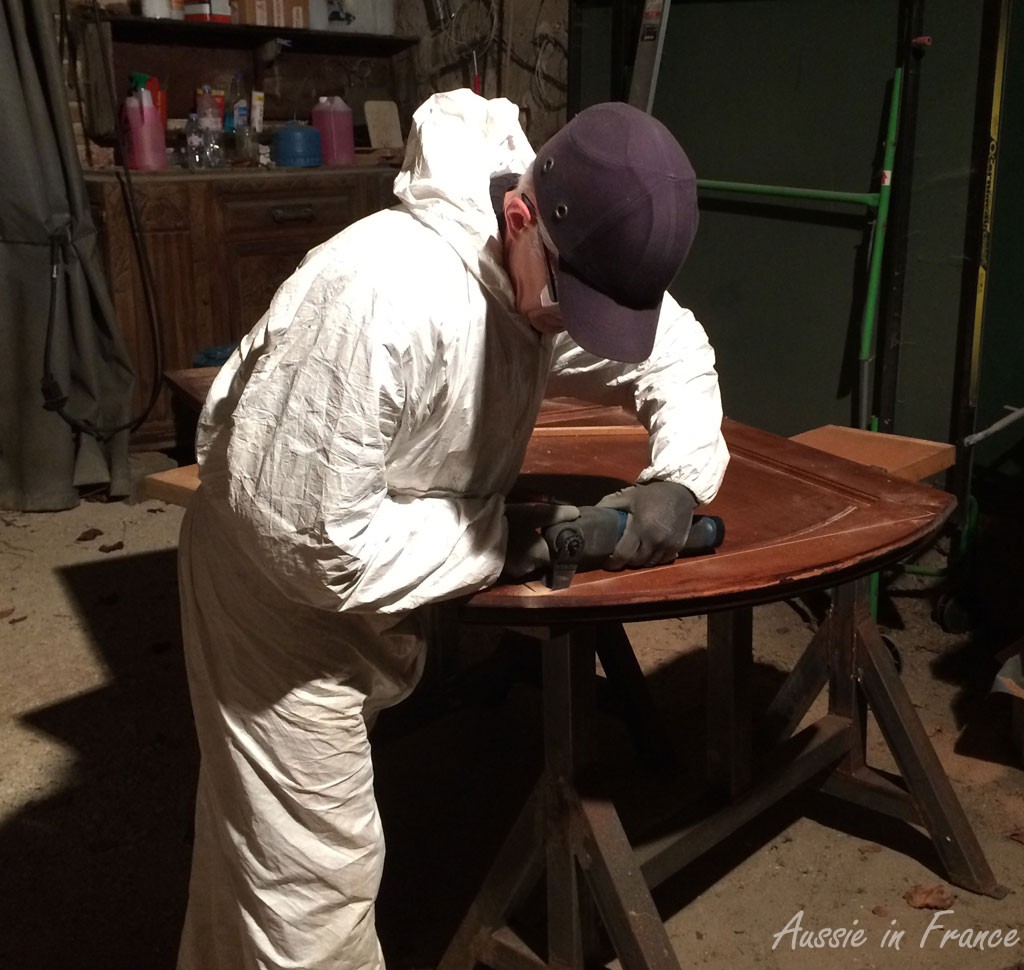I thought that it might be appropriate at the moment to deal with the term retraite in French which means retirement. A similar word is retrait meaning withdrawal as in un retrait d’argent – a cash withdrawal.

So retraite sort of means withdrawing from one’s working life and, from what I gather, suffering from withdrawal symptoms … Now having withdrawal symptoms in a drug or alcohol situation is expressed in French as être en état de manque where manque literally means something missing.
And that is definitely what Jean Michel is experiencing – something vital is missing from his life – the recognition and power of a managerial position and I’m not much of a substitute!
Retraite doesn’t only mean the act of retirement, but also the money you receive when you retire. Il a une bonne retraite : he has a good pension, as opposed to une petite retraite. You can also say une pension de retraite. Otherwise pension is used in French in the same way as in English e.g. une pension de guerre (a war pension), une pension d’invalidité (a disablement pension), une pension réversible or de réversion (a survivor’s pension).
A retiree or pensioner is un retraité ou un travailleur en retraite. Compulsory retirement is mise à la retraite (which sort of sounds like putting out to pasture) and to retire is prendre sa retraite. If you go into early retirement, it’s prendre une retraite anticipée.
But we’re not finished with retraite yet. It also means a retreat as in a retreating army : une armée en retraite. To beat a retreat is battre en retraite.
It can also be a wolf’s lair or a thieves’ hideout and a chemin de retraite is a path of escape. I like that one. I feel like I need one sometimes.
A retreat in the religious sense is also une retraite, in which case we say faire or suivre une retraite.
And just to go back to retrait, there are a couple of other meanings such as ebb and retreat as in retreating waters.
Not to mention the shrinkage of cement and fabric.
Do you have any other examples of retraite, retrait or pension?





I can empathise with Jean Michel. I feel/felt exactly the same, although things are getting better. I don’t for a minute think that my decision to take early retirement wasn’t anything but the right decision, but it guess I wasn’t able to replace my work with a retirement activity which was ‘equivalent’, in that it still required mental challenge, but different. It does get easier.
Bon courage to you both.
Thank you Gaynorb. It’s reassuring to know it gets easier. He, too, doesn’t regret retirement – he was just totally unprepared!
Superb post, Rosemary — so interesting and well-explained. Love your Friday French!
Cheers and bonne retraite.
Glad you enjoy my Friday French! Language is such fun.
Interesting explanation, thanks Rosemary. Now I wonder why a certain type of accommodation I have used in France is called a ‘pension’, must look up the origin.
Re JM – I have found men have more trouble adjusting to retirement than women, who in the main seem more resourceful. During the years of ‘going to work’ one has a defined role, and when that has gone it’s normal to flounder somewhat. I certainly missed the daily social contact with my colleagues. Also, moving to a different city probably affects the situation – it’s a whole new daily life to adjust to. Good luck!
Hi Gara, pension (pensione in Italian) comes from the Latin pensio, pensionis, itself derived from peser meaning to weigh a metal for payment. In 1315 it was used to designate the money (argent or silver) paid annually to a prince, a State or person as wages, which led to the idea of money given for food and board. A pension is therefore a place where you are given food and board as opposed to a hotel where you don’t have to take your meals.
Thank you for your thoughts on retirement and a “defined role”. It’s definitely the problem JM is having. His role is no longer defined by his work so he has to find another role. It’s certainly getting better and he is now realising that his wife is not the problem!
I imagine it’ll take time to adjust. Some sort of mental exercise, something to keep himself occupied and challenged, can help.